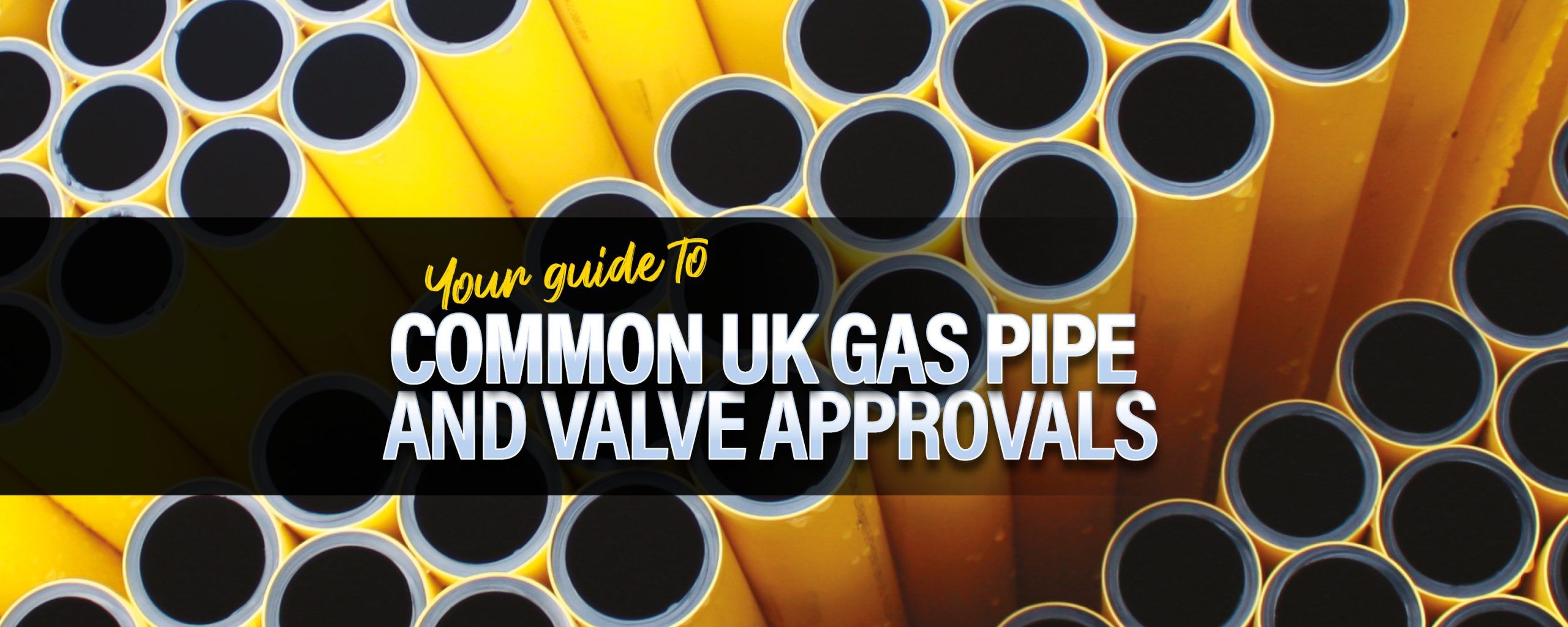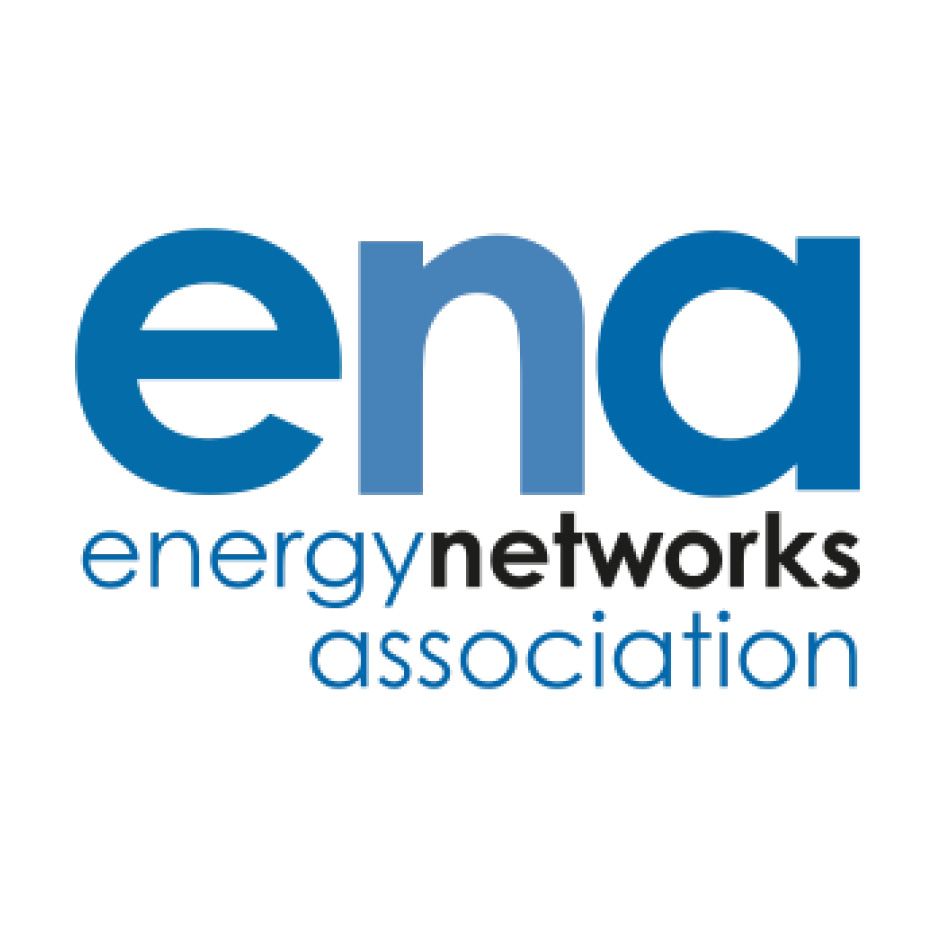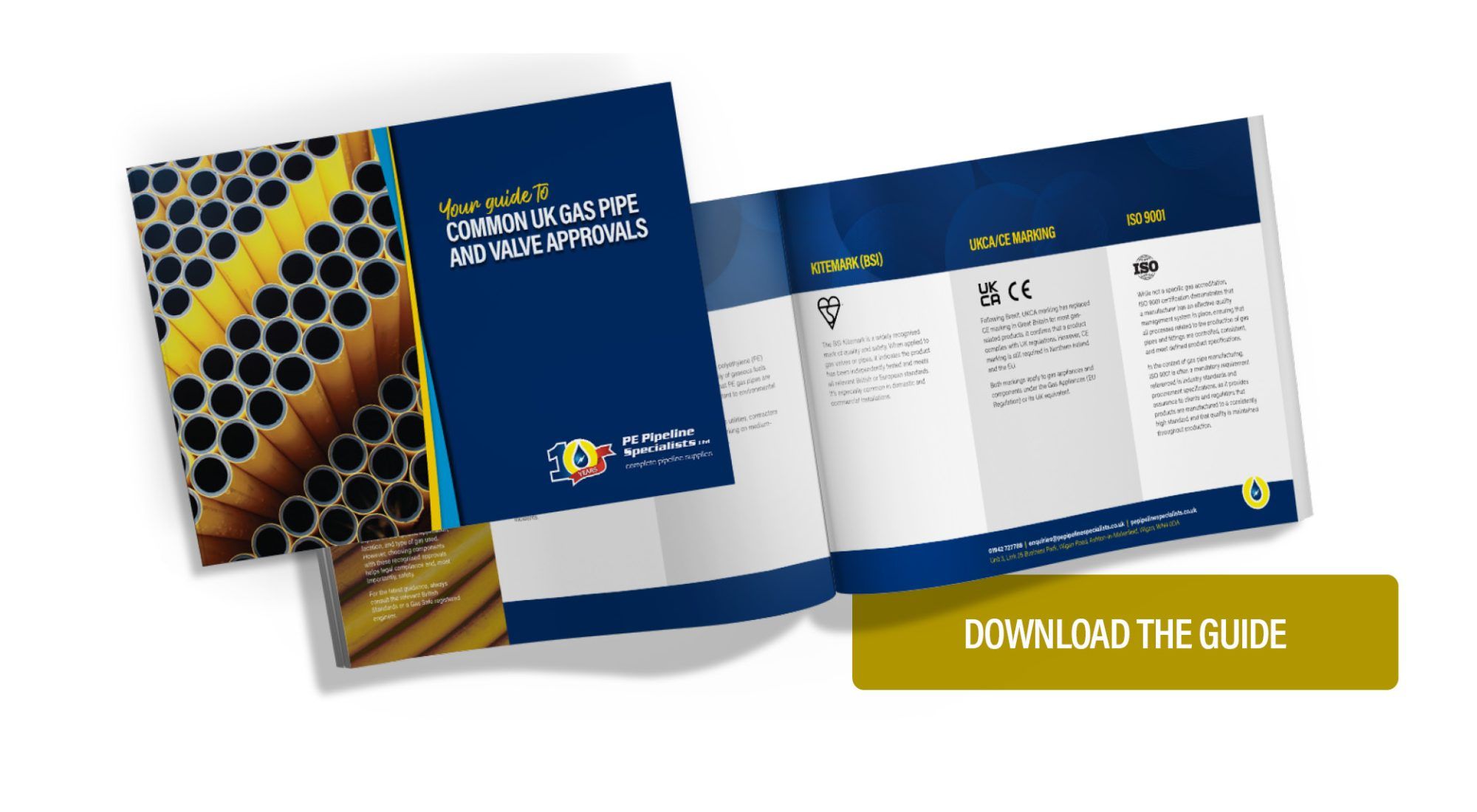


Posted: 20 June 2025

When installing or supplying gas pipes and valves in the UK, each component must meet relevant safety and compliance standards. These approvals help guarantee reliability and legal compliance across various gas systems, giving customers confidence in the products they are purchasing.
We have put together a simple guide to explain the most common approvals for customers using domestic, commercial and industrial gas systems to be aware of.

EN 331 covers manually operated ball valves used in gas installations. It ensures valves can handle gases such as natural gas and LPG at pressures up to 5 bar. Products with EN 331 approval are suitable for both residential and industrial gas applications.
By complying with BS EN 331, you help ensure the manufacture of high-quality, standardised valves that support efficient system performance and reduce the risk of gas leaks in both domestic and industrial settings, lowering the likelihood of fire-related incidents.

BS EN 1555 applies to polyethylene (PE) pipes used in the supply of gaseous fuels. Compliance ensures that PE gas pipes are safe, durable and resistant to environmental stress cracking.
It is widely used by gas utilities, contractors and civil engineers working on medium-pressure gas networks.

BS EN 12201 is the standard for PE piping systems used in water supply, irrigation and sewerage systems under pressure, and although it is not primarily a gas standard, it can be relevant in multi-utility applications or when pipe materials overlap.
While it is water-focused, it is often used by contractors handling multi-utility installations where the same materials and tools are applied.



GIS/PL2-2 covers the use of polyethylene (PE) pipes for gas distribution networks. This part of the PL2 series focuses on solid wall pipes made from PE80 and PE100 materials, which are commonly used in low-, medium-, and intermediate-pressure gas systems.
The standard defines strict requirements for pipe dimensions, wall thickness, ovality
and material classification. It also ensures consistency in mechanical performance,
including minimum required strength (MRS), long-term hydrostatic resistance,
and resistance to slow crack growth. GIS/PL2-2 helps ensure pipes can operate safely underground for decades, even when subject to factors such as ground movement and temperature variation.



GIS/PL2-6 outlines the specifications for spigot end fittings – including flange adapters – designed for electrofusion and butt fusion applications. These fittings, made from polyethylene, cover a nominal size range of 16mm to 800mm and are intended for use in operating temperatures from −20°C to +40°C.
Fittings are classified as Class B or Class C. Class B fittings are suitable for operating
pressures up to 5.5 bar, except for those fabricated using mitred butt jointing, which are limited to 2 bar. Class C fittings are suitable for pressures up to 7 bar.



GIS PL2-8 details the requirements for mechanical fittings used in polyethylene (PE) gas pipe systems, offering an alternative to fusion-based methods such as electrofusion. These fittings are particularly useful for repair work, temporary connections, or installations where fusion welding is impractical.
Mechanical fittings rely on compression, gripping components, and elastomeric seals to achieve a gas-tight connection between pipe ends. The standard outlines the required performance characteristics such as leak resistance under pressure, pull-out resistance, and compatibility with different grades of PE material, including PE80 and PE100.



GIS/PL3 covers PE pipe fittings for use below ground in gas distribution systems. It outlines the technical and performance requirements for fusion-welded and mechanical fittings used to join PE pipes in buried gas systems.
These fittings are commonly used in medium- and low-pressure networks and are critical to maintaining the integrity and safety of the pipeline infrastructure.



GIS/V7 refers to steel ball valves used for high-pressure gas networks. These valves are typically installed above or below ground and are used to control the flow of natural gas through large-diameter pipelines, making them vital components in the UK’s gas infrastructure.
Valves certified to GIS/V7 are typically used by gas transport companies and must be manufactured to exacting standards to ensure safety and serviceability. This standard plays a crucial role in maintaining the reliability of the UK’s national transmission system and high-pressure distribution networks.

The BSI Kitemark is a widely recognised mark of quality and safety. When applied to gas valves or pipes, it indicates the product has been independently tested and meets all relevant British or European standards. It’s especially common in domestic and commercial installations.

Following Brexit, UKCA marking has replaced CE marking in Great Britain for most gas-related products. It confirms that a product complies with UK regulations. However, CE marking is still required in Northern Ireland and the EU.
Both markings apply to gas appliances and components under the Gas Appliances (EU Regulation) or its UK equivalent.

While not a specific gas accreditation, ISO 9001 certification demonstrates that a manufacturer has an effective quality management system in place, ensuring that all processes related to the production of gas pipes and fittings are controlled, consistent, and meet defined product specifications. In the context of gas pipe manufacturing, ISO 9001 is often a mandatory requirement referenced in industry standards and procurement specifications, as it provides assurance to clients and regulators that products are manufactured to a consistently high standard and that quality is maintained throughout production.
Not all approvals are required for every installation – requirements depend on the specific application, location, and type of gas used. However, choosing components with these recognised approvals helps legal compliance and, most importantly, safety.
For the latest guidance, always consult the relevant British Standards or a Gas Safe registered engineer.

PE Pipeline Specialists is your trusted source for high-quality, fully approved mains-to-meter gas pipeline solutions. We deliver the products you need, when you need them – always at competitive prices.
Call us now on 01942 727788 or email us at enquiries@pepipelinespecialists.co.uk.
You can also follow us on LinkedIn for the latest news and developments.
Contact the experts today and get the right advice for your project
01942 727788